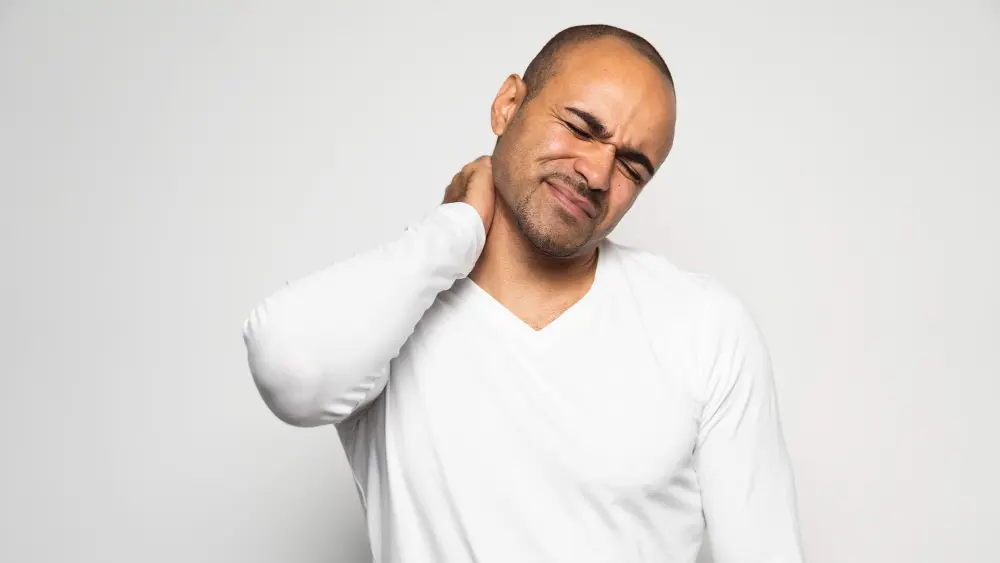Overview of Bus Accident Cases
Being involved in a bus accident can be an overwhelming and disorienting experience. Whether you were a passenger, a pedestrian, or an occupant of another vehicle, the aftermath of such an incident can leave you feeling vulnerable and uncertain about your rights and legal options. It is crucial to approach this situation with a clear understanding of the complexities involved and the necessary steps to protect your interests. Consulting with an experienced bus accident lawyer can provide invaluable guidance during this challenging time.
In this comprehensive guide, we will explore the intricate legal landscape surrounding bus accident cases. We will delve into the various factors that influence liability, the rights of passengers and non-passengers, the role of evidence gathering, and the importance of seeking legal representation from a skilled bus accident attorney. By arming you with this knowledge, we aim to empower you to make informed decisions and navigate the legal process with confidence, maximizing your chances of obtaining fair compensation for your injuries and losses.
Liability in Bus Accident Cases
Determining liability in a bus accident case is a multifaceted endeavor. Several factors come into play, including the ownership of the bus, the status of the victim (passenger or non-passenger), and the specific circumstances surrounding the incident. A knowledgeable bus accidents lawyer can help assess liability based on these key considerations.
Liability Based on Bus Ownership
The liability implications can vary significantly depending on whether the bus involved in the accident was owned and operated by a public entity (such as a municipal transportation authority) or a private company. A school bus accident lawyers will be well-versed in the nuances of liability based on bus ownership.
Public Entity-Owned Buses
When a public entity owns and operates the bus, certain limitations and procedural requirements apply, akin to those governing government liability cases. These may include:
- A shortened statute of limitations, typically six months from the date of the accident, to file a formal claim against the public entity.
- Restrictions on the maximum amount of damages that can be awarded, with larger verdicts potentially being paid in installments.
- Immunity from punitive damages for the public entity itself, although individual employees may still be liable.
- Specific immunities or defenses available to public entities in certain circumstances, such as the design of bus routes or bus stops.
Privately-Owned Buses
In cases involving privately-owned buses, the limitations and immunities applicable to public entities do not apply. Instead, the standard rules of negligence and liability govern these situations. A bus injury lawyer can help navigate the complexities of privately-owned bus accident cases.
Liability Based on Victim’s Status
The duty of care owed by the bus company or driver can vary depending on whether the victim was a passenger on the bus or a non-passenger (such as a pedestrian or occupant of another vehicle). A bus injury attorney can assess liability based on the victim’s status.
Duty of Care to Passengers
Bus companies and drivers owe a heightened duty of care, known as the “utmost duty of care,” to their paying passengers. This duty is rooted in the legal concept of common carrier, which recognizes the special protections owed to individuals who entrust their safety to a transportation service in exchange for payment.
The utmost duty of care requires bus companies and drivers to exercise the highest level of vigilance, skill, and diligence in ensuring the safe transportation of passengers. This obligation encompasses various aspects, including:
- Maintaining and servicing buses to ensure their safe operation.
- Adhering to traffic laws and regulations.
- Protecting passengers from foreseeable risks and potential assaults by other passengers.
- Providing safe boarding and alighting areas for passengers.
Duty of Care to Non-Passengers
While bus companies and drivers do not owe the utmost duty of care to non-passengers, they are still obligated to operate their vehicles in a reasonably safe and prudent manner, adhering to the same standards of care expected of any other motorist or vehicle owner. A lawyer for bus accident can help non-passengers understand their rights and pursue appropriate legal action.
This duty extends to maintaining the bus in a safe operating condition, obeying traffic laws, and exercising due caution to avoid accidents with pedestrians, other vehicles, and property.
Gathering Evidence in Bus Accident Cases
Effective evidence gathering is crucial in establishing liability and building a strong case in a bus accident claim. Bus accident attorneys emphasize the importance of preserving and collecting various types of evidence, which can be invaluable in pursuing fair compensation.
Police Reports
Obtaining a copy of the official police report can provide an objective third-party account of the incident, including details about the involved parties, witnesses, and circumstances surrounding the accident.
Medical Records
Keeping meticulous documentation of all medical visits, treatments, diagnoses, and prognoses from the time you received medical attention after the accident is essential. These records serve as evidence of the injuries sustained, such as traumatic brain injury or spinal cord injury, and the necessary medical expenses incurred.
Witness Statements
Collecting contact information and statements from eyewitnesses can corroborate your account of the accident and provide valuable insights into the events leading up to and during the incident.
Photographic and Video Evidence
If possible, take photographs and videos at the scene of the accident, capturing the damage to the bus, other vehicles, surrounding areas, road signs, traffic signals, and weather conditions. Visual evidence can be invaluable in establishing fault and reconstructing the accident.
Black Box Data
Many buses are equipped with event data recorders, commonly known as “black boxes,” which can provide critical information about the bus’s speed, braking patterns, and other factors at the time of the accident.
Traffic Law Violations
Documenting any violations of traffic laws by the bus driver or other parties involved can help establish negligence and strengthen your case. Distracted driving or driver fatigue are common contributing factors in bus accidents.
Damages Documentation
Compile evidence of all damages suffered as a result of the accident, including physical property damage, medical bills, lost wages, and documentation of pain and suffering.
Expert Testimony
In some cases, the testimony of accident reconstruction experts, medical experts, or other professionals may be necessary to support your claim regarding the cause of the accident or the extent of your injuries.
Legal Notices and Filings
Ensure that you send any required legal notices, such as a notice of claim if a government entity is involved, and file any lawsuits before the applicable statute of limitations expires.
Bus Company and Driver Information
Gather relevant information about the bus company, the vehicle involved, the driver’s employment history, and the maintenance records of the bus. This information can shed light on potential negligence or safety violations, such as mechanical failure.
Federal and State Regulations
Determine whether any state or federal transportation regulations were violated, as such violations can be critical in establishing negligence.
Insurance Information
Obtain insurance information from all parties involved in the accident, as you may need to communicate with multiple insurance companies throughout the claims process.
Seeking Legal Representation
Given the complexities involved in bus accident cases, it is highly advisable to consult with an experienced bus accident injury lawyer who specializes in these types of cases. The best bus accident attorney can provide invaluable guidance and advocacy throughout the legal process, ensuring that your rights are protected and that you receive fair compensation for your injuries and damages.
Elements of a Successful Legal Case
To establish a successful legal case in a bus accident scenario, whether it involves a personal injury claim, a wrongful death claim, or both, you typically need to prove the following elements with the help of a skilled bus accident solicitors:
Duty of Care
You must demonstrate that the bus driver and/or bus company had a legal duty to operate the bus in a safe manner and ensure the safety of passengers and the public.
Breach of Duty
You need to establish that the bus driver or company failed to fulfill their duty of care through negligence or wrongdoing, such as reckless driving, failure to maintain the vehicle properly, or other acts of negligence like bus driver negligence.
Causation
You must prove that the defendant’s breach of duty directly caused the accident and the resulting injuries or damages. In other words, the accident would not have occurred if not for the defendant’s actions or inactions.
Damages
You must have suffered actual damages as a result of the accident, which can be physical, emotional, and/or financial. These damages may include medical bills, lost wages, pain and suffering, and other losses.
By working closely with an experienced bus accident law firm and gathering the necessary evidence, you can build a strong case that meets these essential elements and increases your chances of obtaining fair compensation for your losses.
Conclusion
Bus accident cases can be complex, involving multiple responsible parties, such as bus operators, bus companies, or even government entities, depending on the type of bus service involved. Navigating this intricate legal landscape requires a deep understanding of the applicable bus accident law, regulations, and procedures.
At The Law Office of Arturo Martinez, PC, our team of dedicated bus accident lawyer in McAllen, Texas, is committed to providing the highest level of legal representation to accident victims in the Rio Grande Valley and surrounding areas. With our extensive experience in handling bus accident cases, including charter bus accidents, public transportation accidents, and school bus accidents, we are well-equipped to guide you through every step of the process, from evidence preservation and dealing with insurance companies to filing claims or bus accident lawsuit for damages.If you or a loved one has been involved in a bus accident, do not hesitate to contact us at (956) 781-6203 for a free consultation. Our compassionate and knowledgeable texas bus accident attorney will work tirelessly to protect your rights and ensure that you receive the compensation you deserve through skilled settlement negotiation. We understand the challenges you are facing, whether it’s hazardous road conditions or mass transit accident attorney, and we are here to support you every step of the way on a contingency fee basis.



























